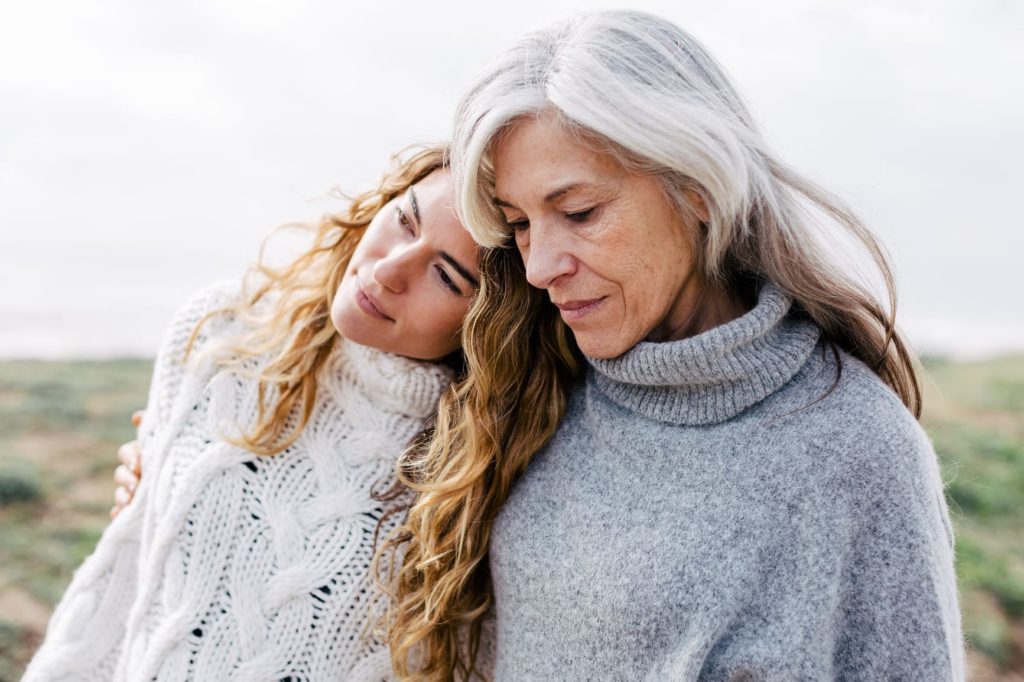The COVID-19 virus has introduced many people to the process of grief. Currently, an estimated 2.856 million people worldwide have passed from the COVID-19 virus. With these deaths, countless people have been introduced to the grueling process of grief. And unfortunately, as Chimere Holmes, LPC, a licensed psychotherapist, explains, grief and loss are two of life’s constants. “Like perpetual change, each of us will inevitably suffer some form of loss in our lifetime,” she continues. “Grief comes in waves and is enveloped in deep feelings of sadness, sorrow, ambivalence and helplessness.”
Recently, I lost my father to a 17-year health battle. While it wasn’t completely unexpected, it was still a shock to my life, to my sense of self, to my meaning of family and my daily routine. As much as I thought I was prepared for the feelings that would arrive, it has been as Holmes described: moments of peace, others of anxiety and other complicated emotions. My silver lining has been my supportive fiance, my mother, and my circle of friends. They have gone above and beyond to show up for me: from flying to my hometown to sending Starbucks gift cards and really, just being a safe place for me to vent, cry or process.
Since I know I’m far from alone in this experience; I talked to experts on how we can all be there for one another during this difficult time.
Do reach out consistently.

A handful of my closest friends have reached out — via text, Instagram or phone — every single day since my dad passed. Sometimes, I don’t have much to report; other times, I’m desperate to get something off my chest. But regardless, knowing they are thinking of me means the world to me. Holmes says that since people who are processing grief face extreme emotional highs and lows, having consistent reach from good friends goes a long way. “Outreach and care reassure the person grieving that they are not alone and that they have support as they go through their loss,” she continues. “The love and empathy of friends makes the process all the more bearable and lessens the sadness of having to manage anniversaries, holidays, or other special occasions alone. Making yourself accessible and available when your friend is in the dark night of the soul will speak volumes and solidify the friendship.”
Don’t bring up their loved one.
There are some friends I’ve known for a decade (or more) that I haven’t spoken to on the phone. I have texted with them, but somehow, saying the news out loud is more excruciating. And I fear they’ll ask about my dad when I’m not ready to talk about how he was, quite yet. According to Evans St. Fort, this is common, the founder of St. Forts Funeral Home & Cremation. In fact, he recommends avoiding discussing your friend’s loved one, unless they do first. “Like any relationship that you are in, for instance, maybe you have been dating or married to someone, and all of a sudden, you break up or separate. When you talk about the person or see photos, it brings up all these memories,” he continues. “It is the same with death and grieving. If you know someone who has experienced a loss of a person, try not to bring up that person.”
Do remind your friend there is no timetable to grief.

When my father passed, and eventually, my family shared the news via social media, I was surprised by how many friends (or friends of friends) reached out, sharing their own experiences losing a parent. Some had lost their mom or dad decades ago, while for others, the grief was still new and raw, like me. What has reassured me in some dark moments is to know there is no timeline for how grief is ‘supposed’ to be. It looks and feels different for everyone — and that’s okay. Holmes says it’s essential for friends to acknowledge a significant loss has occurred and that there is no rush to get through the various stages. After all, as she reminds me, there is no ‘getting over it’ since that person will always be gone. “Grieving is a matter of getting to the point of healing and acceptance where you can healthily get through the days ahead without your loved one,” she adds.
Don’t disappear.
What has reassured me in some dark moments is to know there is no timeline for how grief is ‘supposed’ to be.
Through my grieving, I’ve been surprised by the kindness of many of my friends. And also by the silence of others. Holmes says there is sometimes this notion that people who have experienced a loss want to be left alone when it isn’t helpful in reality. If you feel inclined to reach out and to offer your ear or time, don’t hesitate, as it will be much appreciated. “Make yourself available and hold a safe space so that your friend knows that it is not only okay to remember their loved one, but also that they do not have to hide their emotions,” she continues. “Whether its peaks of depression, loneliness, or anger, assure your friend that their feelings are valid and they deserve to feel whatever it is they are feeling. The best part is, they will have you by their side to work through it.”
Do recommend activities to do together.
My mother has found comfort in house projects and seeing a friend each night for dinner. I’ve thrown myself into work and trying new recipes. Distraction is a miracle worker when you’re feeling upset, so when a friend recommends an activity, I’m excited for the chance to focus my energy elsewhere. St. Ford says keeping your friend’s mind occupied is one of the best ways to help since it forces them to set a healthy routine and new habits or hobbies. While feeling grief is vital for healing, accepting and moving forward, you can’t get trapped in the cycle of sadness.
Don’t compare their grief to your own.

Licensed clinical professional counselor Nyro Murphy says while it could be tempting to share your own experience losing a loved one, it isn’t always supportive in the beginning. She says to refrain from saying, ‘I felt back after I did [FILL IN THE BLANK] when [FILL IN THE BLANK] died.’ “Even if you did and they will, especially at first, it won’t feel helpful,” she continues. “Having empathy means not making assumptions about how someone feels; it means putting yourself in their shoes. It’s not about what you’d want to hear; it’s about what they want and needs to hear. Figuring that out will make you a more empathic listener.”
Do ask what would be helpful.
The most meaningful messages I’ve received from friends have been four simple words: ‘How can I help?’ While many are quick to send flowers and food, which is kind, sometimes there are actual tasks that would be more beneficial for someone grieving. “Offering to help is a proactive way of demonstrating support. Maybe your friend really could use someone to make calls, or bring food, or do something that they need to offload,” Murphy explains.
My best friend flew down to North Carolina right after my dad passed, rented the house next door and made herself available for the week I was there. Mostly, this meant taking care of my dog so I wouldn’t have to worry about it. In addition to being my rock, my fiance cooked a month’s worth of food for my mom’s freezer, so I wouldn’t need to stress if she was eating. Another friend edited a copy for a fund I’m trying to start in his honor, and another helped me with laundry. These tasks may seem silly, but they are so helpful when you’re in the fog of grief.







